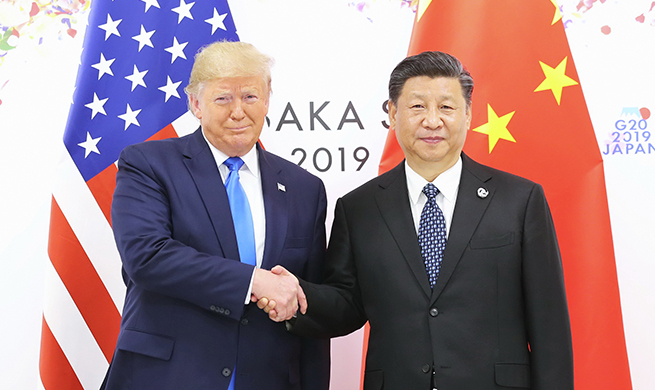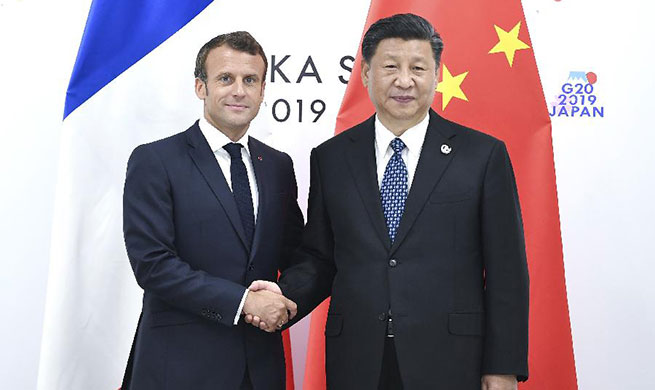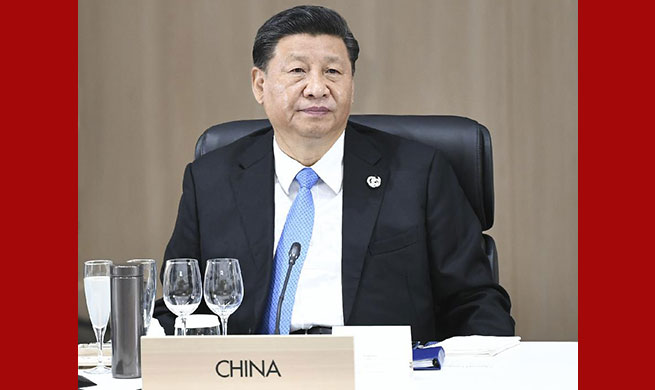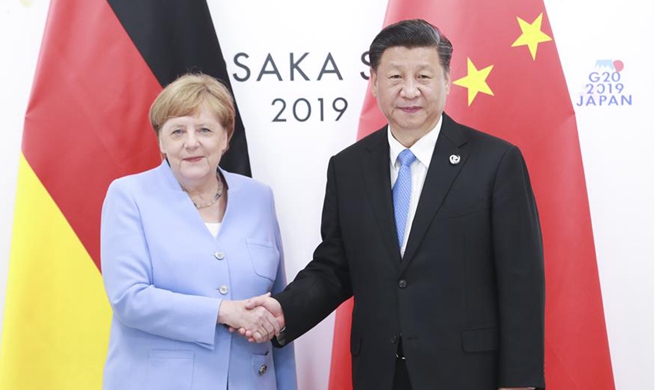ADDIS ABABA, June 29 (Xinhua) -- African experts and policymakers on Saturday expressed hope that the African Continental Trade Area (AfCFTA) agreement will boost domestic production of pharmaceutical products towards ending over-dependence on imported medicines.
The experts and policymakers, who are drawn from Horn of African countries, made the statement during a two-day trade forum on the future of trade as the continental free trade pact took effect, which was held from June 28 to 29 in Ethiopia's capital Addis Ababa.
"The AfCFTA provides an opportunity for economies of scale, lack of which previously hindered African pharmaceuticals production," the experts and policymakers said in a final statement that followed their two-day meeting.
Director of Regional Integration and Trade at the UN Economic Commission for Africa (ECA), Stephen Karingi, said during the meeting on Saturday that the regional trade forum, which exclusively focused on the pharmaceutical sector's future prospects under the AfCFTA, urged the introduction of domestic policies that can be used to support the pharmaceutical industry, such as investment assurances, grants, fiscal incentives and local content requirements.
"However, we should also look at the issue from a regional perspective," Karingi said, adding "We can have policy space to promote local production, but not to the extent that it prevents the flow of trade."
The ECA director also stressed that the African continent has "significant expertise to help build and grow the continent's pharmaceutical industry."
"African traditional medicine is an area where there is room for African innovation, but we need to improve on commercialization. This is an area where many micro-small and medium enterprises operate," said Karingi.
The experts and policymakers, during the regional trade forum, also stressed that the regional centers of excellence could be used to overcome issues in human capacity and limited resources for research and development and testing.
They further recognized the close link between peace and trade and the need for governments to better engage the private sector if the AfCFTA is to achieve its goals.
They also discussed the next steps required for operationalization of the free trade accord and national implementation strategies.
They noted the AfCFTA's "great potential for the continent which is the youngest in the world and expected by 2050 to have 2 billion people."
They also stressed that Horn of African countries to "critically examined how the AfCFTA process through the creation of the type of export diversification needed to generate labor-intensive jobs for Africa's youth in sectors such as manufacturing and agro-industry would answer the question of youth unemployment in a sustainable and equitable fashion."
The forum, which was jointly organized by the ECA, the African Union (AU), the government of Ethiopia, and the European Union (EU), was held under the theme "AfCFTA Implementation: Breaking Down Geographical, Logistical and Regulatory Barriers to Trade and Investment in the Horn to Boost Industrialization: A Focus on the Pharmaceutical Industry."
According to the African Union (AU), the African free trade pact, which was approved by 22 countries last month, meeting the threshold for it to take effect, has laid the foundation for what could be the world's largest free trade zone by the number of participating countries, covering more than 1.2 billion people with a combined gross domestic product of 2.5 trillion U.S. dollars.
Once operational, the African free trade accord is projected to boost the level of intra-Africa trade by more than 52 percent by the year 2020, according to the ECA.













